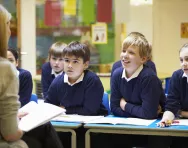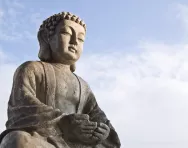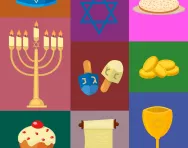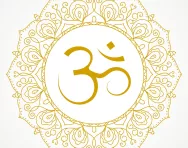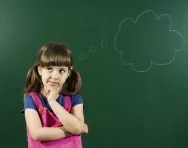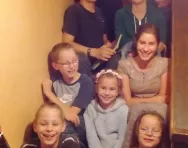Important update from TheSchoolRun
For the past 13 years, TheSchoolRun has been run by a small team of mums working from home, dedicated to providing quality educational resources to primary school parents. Unfortunately, rising supplier costs and falling revenue have made it impossible for us to continue operating, and we’ve had to make the difficult decision to close. The good news: We’ve arranged for another educational provider to take over many of our resources. These will be hosted on a new portal, where the content will be updated and expanded to support your child’s learning.
What this means for subscribers:
- Your subscription is still active, and for now, you can keep using the website as normal — just log in with your usual details to access all our articles and resources*.
- In a few months, all resources will move to the new portal. You’ll continue to have access there until your subscription ends. We’ll send you full details nearer the time.
- As a thank you for your support, we’ll also be sending you 16 primary school eBooks (worth £108.84) to download and keep.
A few changes to be aware of:
- The Learning Journey weekly email has ended, but your child’s plan will still be updated on your dashboard each Monday. Just log in to see the recommended worksheets.
- The 11+ weekly emails have now ended. We sent you all the remaining emails in the series at the end of March — please check your inbox (and spam folder) if you haven’t seen them. You can also follow the full programme here: 11+ Learning Journey.
If you have any questions, please contact us at [email protected]. Thank you for being part of our journey it’s been a privilege to support your family’s learning.
*If you need to reset your password, it will still work as usual. Please check your spam folder if the reset email doesn’t appear in your inbox.
What your child learns in KS2 RE
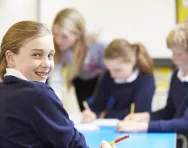
In today’s increasingly multicultural society, learning about world religions is a vital part of children’s education, helping them develop an understanding and tolerance of other people’s faiths.
All maintained primary schools have to provide religious education (RE) in Key Stage 2, but confusingly, it’s not part of the National Curriculum. This means that the content of RE lessons isn’t determined by the Government. Instead, most schools follow what’s known as a ‘locally agreed syllabus’.
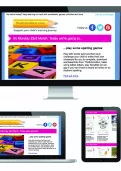
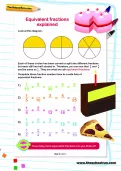
Start a unique learning programme!
- Weekly programme for each school year
- Worksheets sent direct to your inbox
- Keeps your child's learning on track
The locally agreed syllabus is a curriculum for RE drawn up by the local authority. It’s put together by a group of experts including teaching associations and representatives of the Church of England and other faiths. By law, it has to reflect the fact that Great Britain’s religious traditions are mainly Christian, while taking into account its other principal religions.
Faith schools are allowed to set their own RE syllabus in line with the teaching and practices of their religious denomination. The governing body decides what the syllabus will include.
The National Framework for Religious Education in KS2
Although there’s no National Curriculum for RE, the RE Council of England and Wales has produced a National Curriculum Framework for RE (NCFRE) which many local authorities follow when drawing up their locally agreed syllabus.
In KS2, pupils are expected to expand on the knowledge and understanding of religions and worldviews that they gained in KS1.
The NCFRE says they should:
- Describe and make connections between different features of the religions and worldviews they study, discovering more about celebrations, worship, pilgrimages and rituals.
- Describe and understand links between stories and other aspects of the communities they are investigating, responding thoughtfully to a range of sources of wisdom and to beliefs and teachings of different communities.
- Explore and describe a range of beliefs, symbols and actions so they can understand different ways of life and ways of expressing meaning.
- Observe and understand varied examples of religions and worldviews so that they can explain, with reasons, their meanings and significance to individuals and their communities.
- Understand the challenges of commitment to a faith community, suggesting why belonging to a community might be valuable.
- Observe and consider different dimensions of religion, showing an understanding of similarities and differences within and between religions and worldviews.
- Discuss and present their own and others’ views on questions of belonging, meaning, purpose and truth, through different forms such as music, art and poetry.
- Consider and apply ideas about ways in which diverse communities live together for the wellbeing of all, taking account of values, community and respect.
- Discuss and apply their own and others’ ideas about ethical questions, including ideas about right and wrong, and justice and fairness.
KS2 Religious Education: lesson examples
Because the RE syllabus isn’t prescribed by the National Curriculum, the way in which it’s taught will vary between schools. However, these are examples of the sort of lessons your KS2 child may take part in.
Year 3 pupils look at how Christians, Muslims and Jewish people pray. They write their own prayer or meditation for a specific occasion, such as a wedding or a birth celebration.
Year 4 children study the religious codes for living of the major UK religions (e.g. the 10 commandments in Christianity). They discuss the similarities and differences between the codes, then come up with their own code of conduct for school life.
A Year 5 class uses art or music to create a piece of work that sums up their understanding of what it means to belong to a particular religion.
A Year 6 class visits different places of worship, including a church, synagogue and mosque, and compares how their architecture expresses each community’s way of life, religious customs and values.
As RE is not a National Curriculum subject, there is no formal assessment for children in primary schools.
Withdrawing your child from RE lessons
It’s your right to withdraw your child from RE as a whole, or from specific lessons, events or celebrations. You don’t have to provide the school with any reasons for this; however, the school should make sure you’re aware of the content of its RE syllabus so you can make an informed decision.
